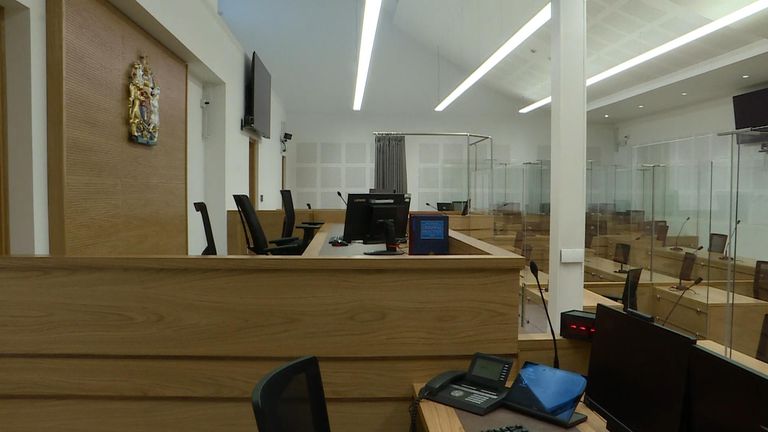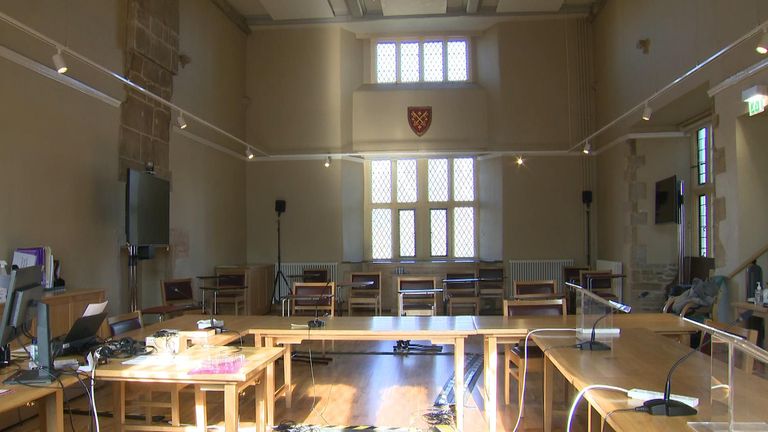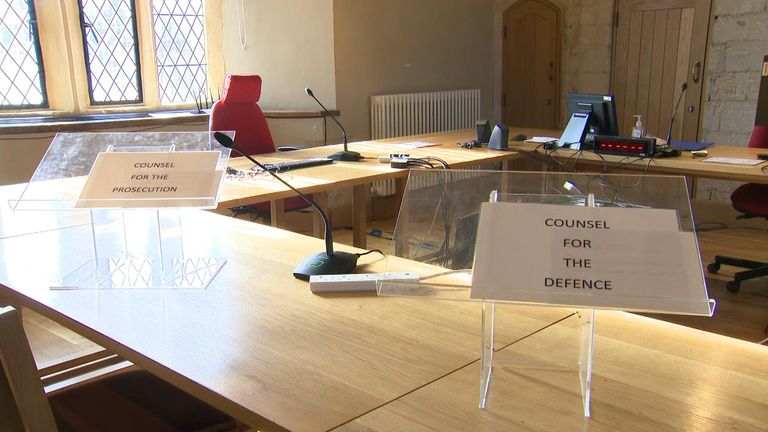Victims of crime could be left waiting for years for justice after Dominic Raab admitted he did not know how long it will take to get through the backlog of the most serious court cases.
In an interview with Sky News, the justice secretary said he “couldn’t say with precision” when the backlog of more than 60,000 crown court cases in England and Wales will return to the level it was at before the pandemic.
He suggested it could be up to a year before it starts to fall, and did not deny that it might take seven or eight years to clear it.
Mr Raab conceded that victims of crimes, particularly rape and sexual offences, have suffered “the extra anguish and ordeal of this wait in limbo” and said it was his top priority to ensure swifter justice.
He also rejected the idea – put forward by previous Conservative justice secretaries – that short sentences should be replaced by community service. Describing that approach as “just letting people off”, he said it was not a route he would go down as it would “not instil public confidence”.
He also said it was “inconceivable” the prison population, currently around 81,000 in England and Wales, would fall on his watch unless crime fell, and that he would focus on using offenders’ time for job training.
Mr Raab will today announce the opening of a £2.7m new “super courtroom” in Loughborough, the second of its kind in the UK, in which up to 12 defendants can sit in the dock. Another in Manchester opened last month.
Alleged crimes including gang violence and country lines drug running account for about a fifth of the backlog because social distancing rules have stopped them going ahead.
A nine-defendant murder trial begins in the new courtroom this week. Mr Raab said that using these facilities instead of multiple courtrooms for hearings would free up space for an extra 250 other cases a year.
The crown court backlog stands at 60,292, according to the latest Ministry of Justice figures from the end of June, compared with 41,045 in March 2020 when the pandemic began – a 48% rise.
Despite a £1bn increase in funding for court backlogs over the next three years, secured in last month’s Spending Review, it is expected this will only reduce the backlog to 53,000 by 2024.
Mr Raab said: “We’ve started to see the backlog stabilise. I can’t tell you with any precision exactly when we’ll get back to pre-pandemic levels. But I’m confident that within six to 12 months at the very latest we will start getting the backlog coming down.
“That is the 15% of the most complex cases that go through the Crown Court, which because of the pandemic and the rules on social distancing applying to things like jury trials, we couldn’t run safely and responsibly in the way that we would in normal times.”
Asked twice whether it could take seven or eight years to get the backlog down, he said: “We’ll go just as fast as we can. We’ve got to use technology; we’ve got 13,000 cases every week that are using some form of video technology.”
Sky News visited Peterborough Cathedral, one of dozens of Nightingale Courtrooms which were opened during the pandemic – of which 32 are still operating to help with the backlog. The court, which can hear family cases and criminal cases which do not require security, does not sit full-time.
COVID saw the shutting down of jury trials between March and May last year, but the justice system has also suffered from years of spending cuts, losing a quarter of its budget since 2010.
Mr Raab said he did not accept there was a shortage of funding for lawyers and judges, which the Criminal Bar Association said had exacerbated “interminable waits for justice”.
He said: “I’ve secured pretty much a record increase in funding for justice in the spending review for the next three years, and I look forward to delivering.”
Sky News spoke to “Lisa”, who does not want to be identified, about reporting a sex offence she suffered as a child – only to wait three years for the perpetrator to be jailed, with three trial dates and various other hearings cancelled.
At one point she drove 100 miles to attend a court hearing which was cancelled due to COVID – and had to relive her testimony on video before each hearing.
“I felt like I was serving a prison sentence,” she said. “I haven’t been able to do my job for long periods of time. It has destroyed my personal life.”
She added: “I was going to move house; that hasn’t happened. I was planning to adopt; that hasn’t happened. Everything has been put on hold because I didn’t want this man to do what he did to me to someone else.”
Mr Raab said: “It’s not just the delay – and justice delayed is justice denied – but that process is very traumatic.
“That’s why we are bearing down on the backlog. It’s my number one priority to get the backlog down to give justice to victims.”




